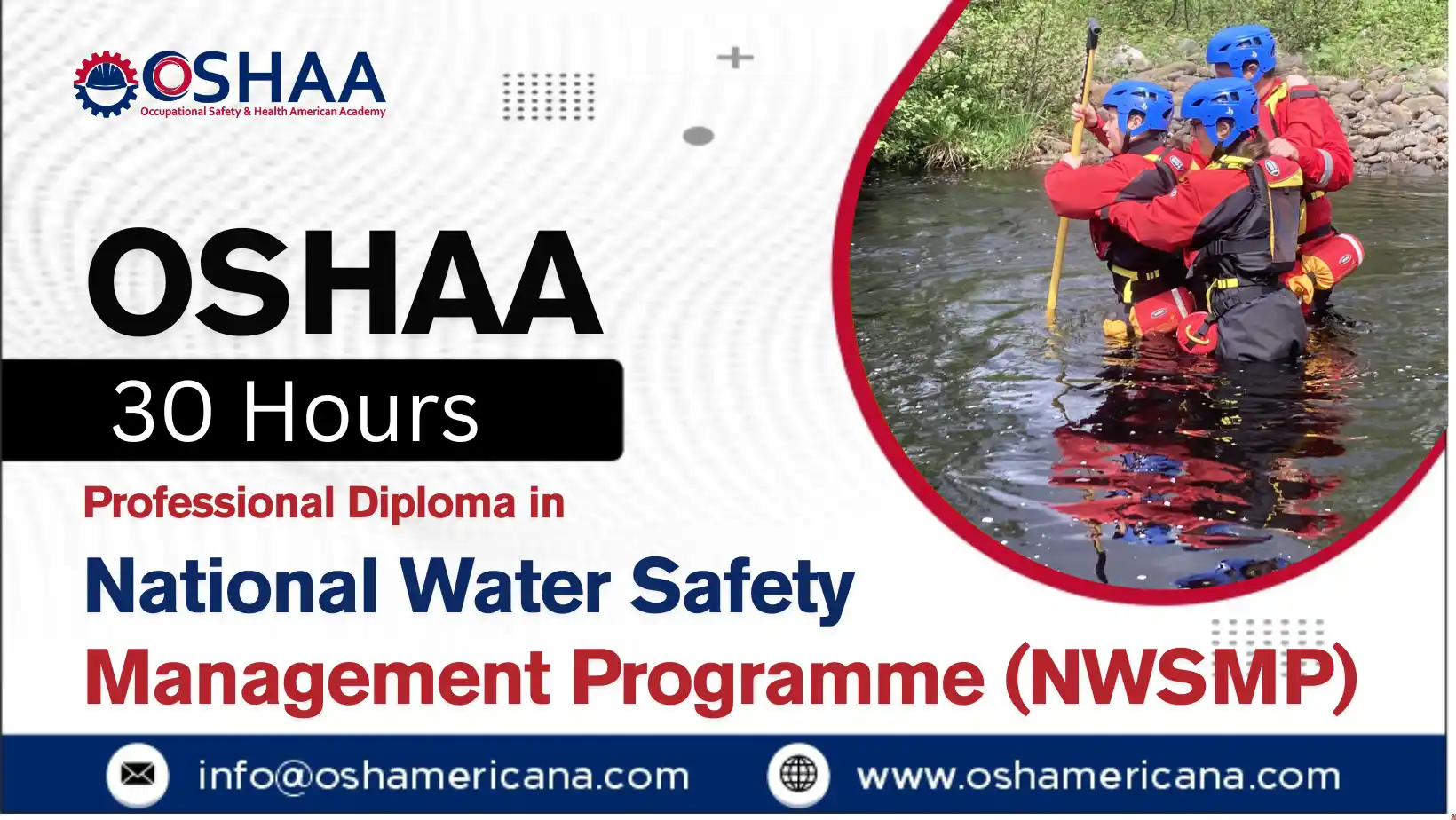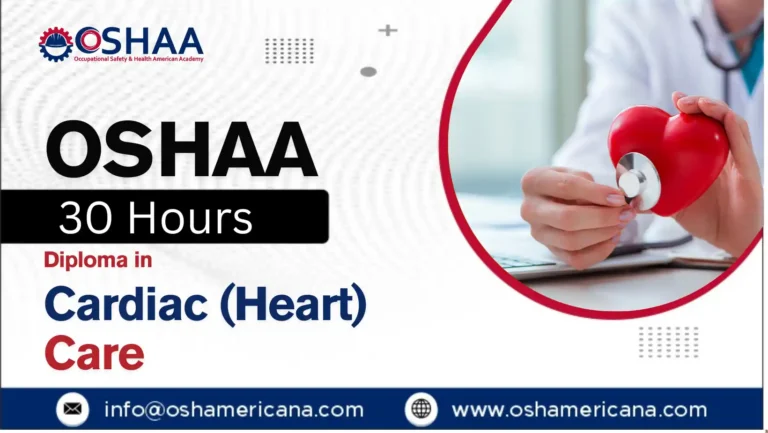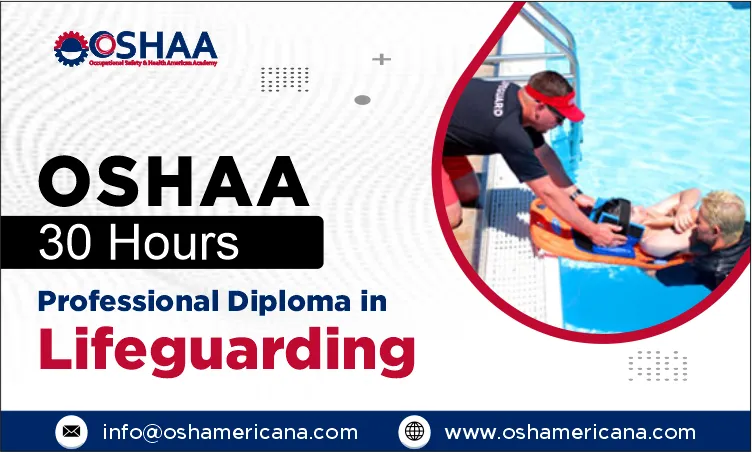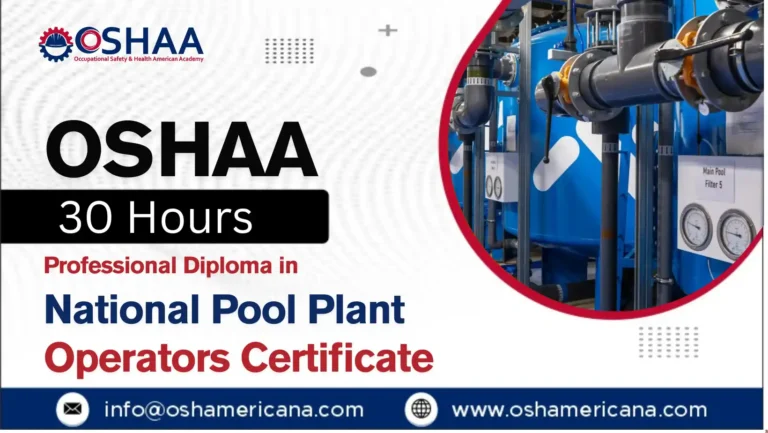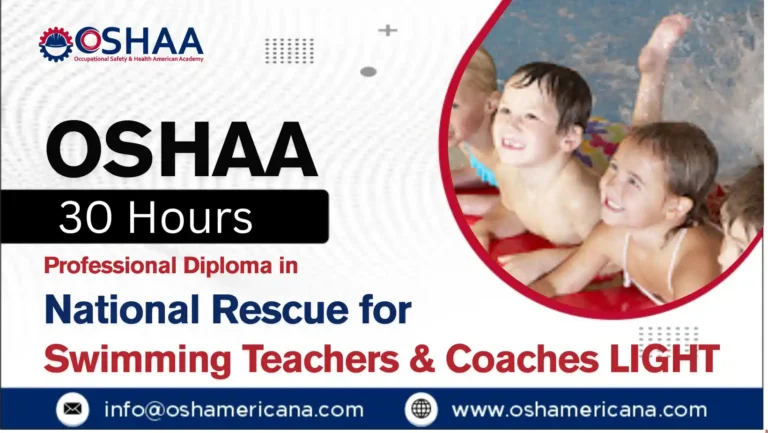Professional National Water Safety Management – OSHAA 30-Hours
The OSHAA 30-Hours Professional Diploma in National Water Safety Management Programme (NWSMP) is an advanced qualification designed to equip participants with the knowledge and practical expertise needed to manage water safety across a wide range of aquatic environments. Awarded by OSHAA, this programme meets high professional standards and delivers essential skills for effective water safety governance and operational excellence.
Participants explore a comprehensive curriculum covering key water safety principles, including hazard identification, risk assessment, and the development of effective safety management systems. The course blends theoretical learning with practical application, enabling learners to design, implement, and evaluate water safety procedures for swimming pools, open water sites, leisure facilities, and community aquatic programmes.
Strong emphasis is placed on regulatory compliance, legal responsibilities, and industry best practices, ensuring participants understand legislative requirements and ethical duties in water safety management. The programme also covers emergency preparedness, incident response planning, and staff training strategies to build a proactive safety culture.
Throughout the training, participants develop advanced skills in safety auditing, risk control implementation, and stakeholder engagement to improve overall safety performance. Continuous improvement is encouraged through reporting, data analysis, and adaptive management approaches.
OSHAA 30-Hours Professional Diploma in National Water Safety Management Programme (NWSMP)
Study Units
Learning Outcomes
Introduction to Water Safety Management and Roles (3 Hours)
- Understand the key roles and responsibilities in water safety management
- Recognise the importance of effective water safety governance
- Identify the scope and objectives of water safety programmes
Legal and Regulatory Frameworks in Water Safety (3 Hours)
- Describe relevant laws and regulations governing water safety
- Apply legal requirements to ensure compliance in aquatic environments
- Understand the consequences of non-compliance for organisations and individuals
Principles of Risk Assessment and Hazard Identification (4 Hours)
- Conduct thorough risk assessments specific to water safety contexts
- Identify potential hazards in diverse aquatic environments
- Develop strategies to mitigate identified risks effectively
Developing and Implementing Water Safety Policies and Procedures (4 Hours)
- Design comprehensive water safety policies aligned with best practices
- Implement procedures to enhance safety and reduce incidents
- Monitor and review policies for ongoing effectiveness
Emergency Preparedness and Incident Response Planning (4 Hours)
- Develop robust emergency preparedness plans for aquatic settings
- Coordinate incident response activities efficiently during emergencies
- Ensure readiness through training and resource allocation
Safety Audits and Compliance Monitoring (3 Hours)
- Perform detailed safety audits to evaluate water safety measures
- Monitor compliance with established safety standards and policies
- Recommend improvements based on audit findings
Training and Development for Water Safety Staff (3 Hours)
- Plan and deliver effective training programmes for safety personnel
- Enhance staff competence and awareness in water safety practices
- Evaluate training outcomes to ensure continuous professional development
Communication Strategies and Stakeholder Engagement (3 Hours)
- Develop clear communication plans to promote water safety awareness
- Engage stakeholders including staff, users, and regulatory bodies
- Foster a collaborative culture supportive of safety initiatives
Data Collection, Reporting, and Continuous Improvement (3 Hours)
- Collect and analyse data related to water safety performance
- Prepare accurate reports to inform decision-making processes
- Implement continuous improvement cycles to enhance safety outcomes
- Equips participants with comprehensive knowledge of water safety management principles
- Enhances ability to develop, implement, and monitor effective safety policies and procedures
- Strengthens skills in risk assessment and hazard prevention tailored to aquatic environments
- Prepares participants to design and execute emergency preparedness and response plans
- Builds expertise in conducting safety audits and ensuring regulatory compliance
- Improves capacity to train and develop water safety personnel for operational excellence
- Fosters effective communication and stakeholder engagement to promote a safety culture
- Develops proficiency in data-driven decision-making and continuous safety improvement
- Supports adherence to legal and ethical standards in water safety management
- Provides a recognised professional qualification that advances career opportunities in water safety and aquatic facility management
- Participants responsible for managing safety in aquatic facilities and water-based environments
- Water safety officers, pool managers, and facility supervisors seeking advanced management skills
- Professionals involved in emergency planning and response within aquatic settings
- Individuals tasked with developing and implementing water safety policies and procedures
- Training coordinators and educators responsible for water safety staff development
- Regulatory compliance officers and auditors in the water safety sector
- Community leaders and programme managers overseeing water safety initiatives
- Those aiming to enhance their professional qualifications and leadership in water safety management

